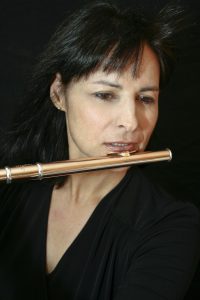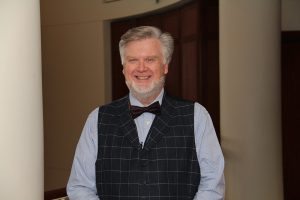Maybe you started piano lessons as a child, but got too busy with varsity sports (or video games). Or perhaps you joined the school band but stopped playing when you graduated high school. Or maybe you never took music lessons at all.
Chances are, though, that music plays a role in your life, whether you sing Taylor Swift in the shower or listen to Vivaldi in the car. Even if you have no aspirations to play Carnegie Hall, you can benefit significantly from engaging more deeply with music.
For one thing, learning to sing or to play an instrument can help you cope with the stresses of moving to a new city, the anxiety of starting at a new school, or the tension that accumulates from a tough day at work. Playing music confers a host of physiological benefits, from stimulating important brain functions like attention and memory (Inc magazine declared it to be the one activity that benefits our brains more than any other!) to lowering our heart rates and blood pressure, according to researchers from Stanford, Northwestern, and the University of Montreal.
It also can help us with other important life skills, like teamwork and communication (ever play in a band?), problem solving, and discipline. In addition, the emotions and pictures evoked by music can bridge cultures, giving a common language to people from different parts of the world.
The good news is that it’s never too late to pick up music again, or to start from scratch.
We talked to two Saint Rose faculty members who have devoted their careers to helping students and the general community appreciate and enjoy music. They shared their insights into, and passion for, learning this special, universal language:
Dr. Robert (Bob) S. Hansbrough, professor of music, music educator with 40 years of experience teaching college students, as well as younger musicians
Dr. Yvonne Chavez Hansbrough, professor of music, music educator, and flutist, with more than 20 years of teaching and performing all over the world
Why are music lessons beneficial?
Chavez Hansbrough: Learning to play allows for artistic expression. It also helps with building confidence and can be therapeutic and stress relieving. Playing music is a way to socialize with others. In addition, once you’ve learned an instrument, you can continue playing in adulthood for enjoyment, even if you haven’t pursued a career in music!
Hansbrough: First and foremost, it’s fun! However, there are many additional benefits to learning an instrument. For example, when you sight read musical notation on an instrument, your brain is commanding your body to perform many different functions at the same time (such as reading the sheet music; interpreting the pitch, rhythmic, and dynamic notation; commanding your fingers or vocal cords to form those pitches in the right sequence and with the correct rhythm; and listening to ensure you’re producing the right sounds).
This demand increases when you are sight-reading or performing within an organized group. Having to work with others enhances the brain to use its memory, organizational skills, team skills, coordination, mathematical ability, reading and comprehensive skills, perseverance, concentration, and self-expressive skills at a much higher level, and all at the same time.
What has music given you?
Chavez Hansbrough: Playing the flute has allowed me to be expressive and creative. I also enjoy sharing wonderful music with others in my performances. I have had the opportunity to learn how to play many types of flutes from various eras and styles. This has helped me become familiar with a wide range of composers and performance styles. After 30-plus years of playing professionally, I still enjoy the challenge of learning and exploring new repertoire and collaborating with others in performing chamber and orchestral music. I feel very fortunate to be able to perform as part of my career in music.
Hansbrough: Some of the things I’ve gained from my engagement with music are how to be musical, and how to apply the fundamental knowledge I’ve learned to become more sensitive and expressive through the instrument.
When you perform organized music with others, you learn how to contribute to the musical journey by executing your role within the ensemble and the composition. This is when music touches the emotions of those performing at very high levels.
How can I get started?
Chavez Hansbrough: At Saint Rose, we have many ensembles open to non-music majors. Some ensembles are open by audition or by instructor’s approval.
Hansbrough: With very few exceptions, almost all of our performing ensembles at Saint Rose are open to all students enrolled at the College. This includes Wind Ensemble, Symphonic Band, Masterworks Chorale, Jazz Ensemble, and Symphonic Orchestra, as well as many other vocal, instrumental, and commercial chamber ensembles.
We also offer fundamental classes in musicianship and teach secondary lessons on all instruments, which differentiates us from many other colleges. All registered Saint Rose undergraduate and graduate students are eligible to take noncredit-bearing secondary lessons, with approval from the applied teacher (schedule permitting).
If the professor you ask isn’t available, a Saint Rose faculty member who specializes in the instrument of interest, or our department chair, may be able to recommend a private teacher (who may even be a Saint Rose alum). The Empire State Youth Orchestra (ESYO) is another great musical resource that maintains lists of private studios in the Capital District.
Learn more about our music programs.
| Tips for (re)starting your music lessons |
|---|
|
The author of this post, Sarah Uzzi G’21, is a graduate student at Saint Rose.






Comments posted on this site are held in moderation until approved by a site administrator. Vulgar, profane, obscene, offensive terms or personal attacks will not be tolerated.